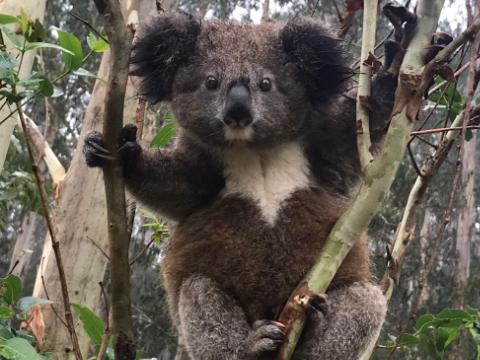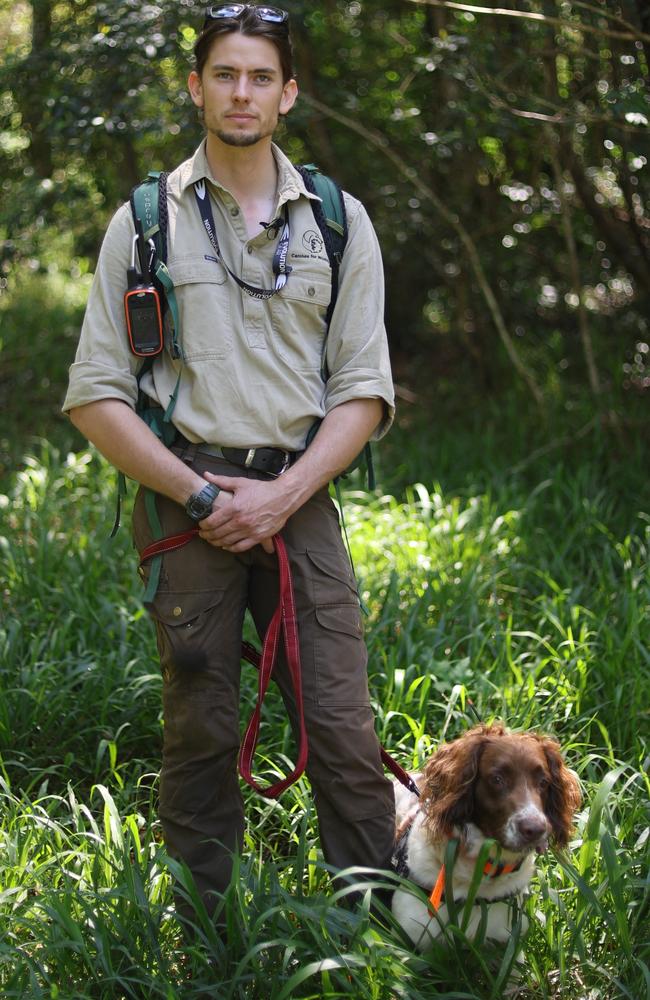Max follows nose to rare, chlamydia-free koalas
English springer spaniel Max has sniffed out an unknown population of rare, chlamydia-free koalas in Northern NSW – but conservationists warn their homes are under threat by logging.
NSW
Don't miss out on the headlines from NSW. Followed categories will be added to My News.
English springer spaniel Max has spectacularly sniffed out an unknown population of rare, chlamydia-free koalas in Northern NSW.
But conservationists warn their homes are under threat by continued logging.
Max and other teams from Canines for Wildlife were recruited to survey for koalas across 115 sites in the Coffs Harbour and Bellingen areas, ranging from coastal regions to the Dorrigo Plateau, whose findings have revealed a broader koala population with a high genetic diversity.
Koalas at a private property in Fernbrook were found completely free of the disease, which is one of the leading causes of a decline in koala numbers.

“It’s bigger, it’s got darker fur and it looks like a koala that lives in cold country and high altitude,” Worldwide Fund for Nature conservation scientist Dr Stuart Blanch said.
The findings mean the koalas would be more likely to survive coming decades as climate change impacts their environment.

Dr Blanch said logging must stop immediately in the region, which is being earmarked for inclusion in the government’s plan for the Great Koala National Park.
“If we keep chopping down their homes or crushing koalas when trees are felled, more koalas will die,” he said.
Canines for Wildlife director Jack Nesbitt said the data should spark an urgent need for conservation of the habitat. Training to detect their first odours takes handlers and their dogs over a year to perfect.
Do you have a story for The Telegraph? Message 0481 056 618 or email tips@dailytelegraph.com.au




